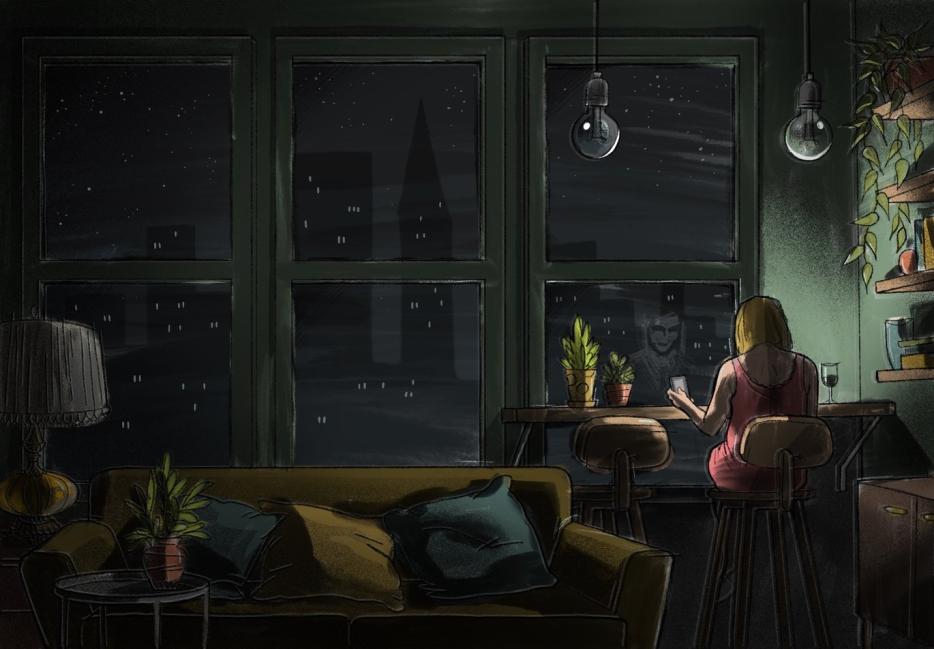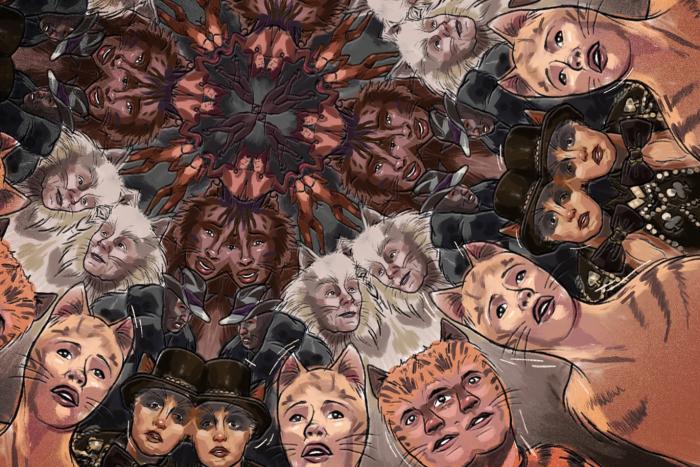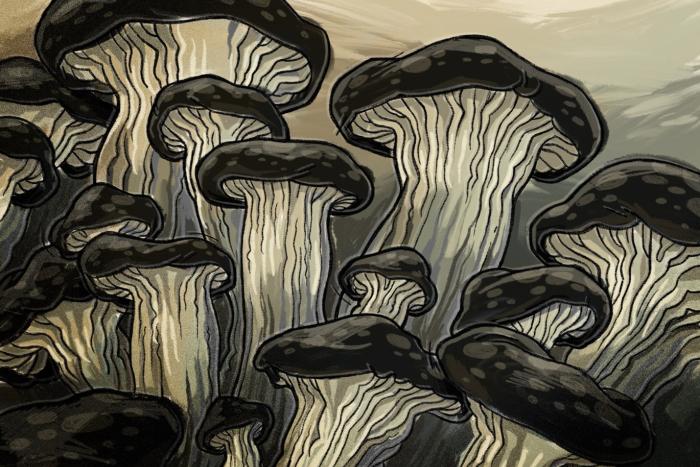What were we obsessed with, invested in, and beset by in 2020? Hazlitt’s writers reflect on the issues, big and small. Keep up with this year's series here.
During the dilated months between March and August, when I was never bored because I was always anxious, I developed an obsessive new habit of googling my name roughly once a week. You might think the pandemic with all its attendant precarities, my cascading worries for the health of my aging parents, my job security, the fabric of society and so on, would supersede other anxieties, but I was surprised to find this new distress was merely additive, and my book anxiety—I had a book coming out in August—was still there. This loathsome activity of searching for evidence that my book had been read was not even strictly necessary, because years ago I signed up for the freemium tier of a brand monitoring software that sends me an email when my full name appears anywhere on the internet. My only excuse is that the service is not one-hundred percent reliable, and sometimes there’s a minor delay. Or maybe my excuse (I feel guilty though this hasn’t harmed anyone, and no one’s making me confess) is that my sudden withdrawal from the world outside my apartment, where friends and strangers could see my whole body, not just my face in a square on a screen, moving around and doing things—right now, I’m imagining that body, my body, from the outside, sitting at a bar alone and looking at my phone—led to self dissolution: My self was less there, and seemed to require repeat confirmation of existence.
The pandemic has become what the philosopher Timothy Morton calls a hyperobject: The scale of the horror and devastation is so large we can’t see it anymore. I mean I literally can’t see it—I’m looking out my window; the pandemic isn’t there. I saw an image one time of what Jupiter would look like if it were as close as the moon—it would fill the whole sky, cut off by the horizon like a rainbow, or an iceberg. But Jupiter isn’t like that. My point is, while the pandemic happens, really happens, mostly out of sight, I have plenty of time to sit around still caring about my own life. It’s comforting to know that in the annals of history my day-to-day suffering, my personal suffering, won’t show up at all. History is low-resolution, and I will not matter; I can’t remember all my great-grandparents’ names. (I am not sure why I like to be reminded of my insignificance-in-the-grand-scheme if I dislike being insignificant now.) Unfortunately, in the present, the details are apparent, if only to me. One segment of my useless desire for change—for life to get better, I must specify, not worse!—stayed tethered to my book, an idea that somehow my book was going to save me. These hopes were powerful but vague—I was constantly waiting, but knew not for what. The weeks went by. There was never any Rilkean moment, no flash of light.
One Friday this summer, I absent-mindedly opened a tab and started typing my name—it had become the kind of habit that is almost automatic, like adjusting your glasses, which I sometimes try to do when I’ve already taken them off and put in my contacts. It was likely there was nothing to discover, and of course if there was, there was every chance it might ruin my day. I have an exceptionally google-able name. There are not, to my knowledge, any other Elisa Gabberts. Most of my writer friends have to compete with other entities—a poet named Justin Marks, for example, is outranked by a race-car driver. Another poet, Chris Tonelli, has edged out a music theorist of the same name. The most famous Gabbert is Blaine Gabbert, a quarterback. We’re probably distantly related; it’s an uncommon surname, an Ellis Island bastardization of the German Gebhardt. Blaine is the first suggestion if you google just “Gabbert.” On this particular afternoon, an idle curiosity made me pause after typing “Elisa”—I wanted to see who the famous Elisas were.
At the time, the first suggestion was Elisa Jonathan, a runner-up for Miss Indonesia in 2019 and an “Instagram star” with over 74,000 followers. (The feed is mostly photos of her, but one recent post is just a gray typeface on a pink background reading “IN THE MOOD TO BE CUTE AND HUSTLE.”) I had never heard of her. The second suggestion was Elisa Gayle Ritter, who I’d never heard of either. The image results revealed someone who looked exactly like Reba McEntire. This was intriguing. Who was she? How could there be two famous people who both looked like Reba McEntire? I found a tweet with two photos that read: “OK, this is legitimately the craziest thing I’ve seen in a long time. Not only is that NOT @reba McEntire, it’s a woman named Elisa Gayle Ritter, and as if that wasn’t crazy enough, they were both married to the same dude!!! I guess he really has ‘a type’!” That “dude” was the television producer Narvel Blackstock, who was married to Reba McEntire from 1989 to 2015; Elisa Gayle Ritter was his first wife, from 1973 to 1988. Had he really married someone who looked so much like Reba McEntire that, after they divorced, he decided to try again with Reba McEntire? No, as it turns out; Elisa Gayle Ritter just isn’t famous for anything except being Reba McEntire’s ex-husband’s first wife, so her name search serves up a bunch of pictures of Blackstock and McEntire—but, notably, not the same pictures you get when you google Reba McEntire. This gave birth to a conspiracy theory that they’re the same person.
I thought that was pretty interesting. Going back to the search results, I clicked on the third suggestion, Elisa Lam. I had been seeing this name in the Google suggestions for years, along with “elisa test” (ELISA stands for enzyme-linked immunosorbent assay—perhaps the true most famous Elisa, or at least the most famous assay). But I’d never bothered to learn who she was; I think I just assumed she was an actress. She was not. She was a Canadian college student who disappeared mysteriously from a hotel in LA (the Hotel Cecil, which is cursed with a history of suicides and violent deaths) while traveling alone, in 2013. She was missing for weeks before they found her body in a water tank on the hotel’s roof. A surveillance video surfaced of Lam acting strangely—furtive and scared—in the hotel elevator just before her disappearance. The video went viral and conspiracies flourished. I watched a short documentary on YouTube about it. Some people thought she was hiding from a murderer, others a ghost. The autopsy ruled that her death was accidental—she had fallen in the tank and drowned.
I stopped my research after that. I felt sickened by this true crime horror film—and sick of myself, by myself, the sickness unto death. That hangover feeling. Too much Elisa. I rarely write “personal essays” because they tend to make me hate my personality, the subject. Upon examination I am boring at best, reprehensible at worst. These bouts of self-loathing always feel somehow childish, indulgent, though it’s one of the most common symptoms of depression, the mind’s grossed out awareness of its own dysfunction. My guilt isn’t Catholic; I don’t expect absolution through confession. I guess this is communal—I want to commiserate with other self-loathers. Or maybe it’s preemptive—I want to hate me before you can.






